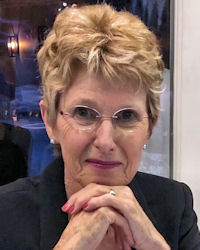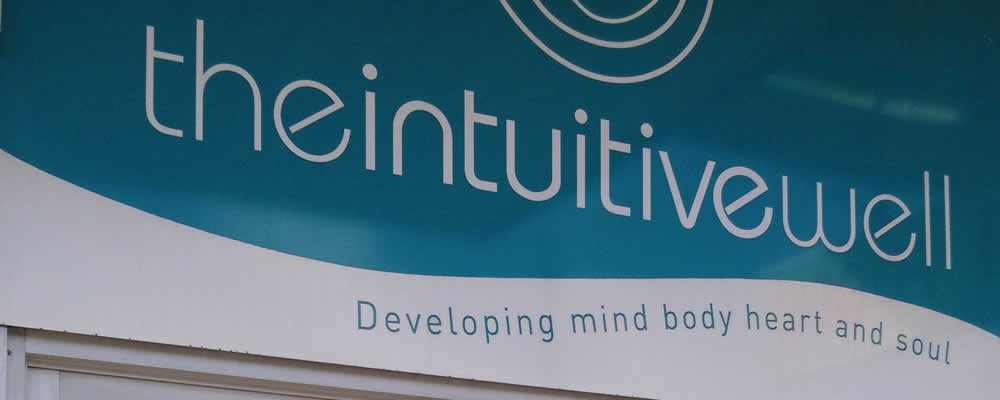
Ms Brenda Rowlandson
Psychotherapist, Somatic Psychotherapist
Bondi Junction, Sydney NSW 2022
In Person + Telehealth
Philosophy & Vision
When you face distressing or unsettling times in your life, talking about thoughts and expressing feelings with an experienced therapist in a safe space, can be relieving and calming. Psychotherapy can build more awareness of relational, bodily and emotional experience, and provide an opportunity to build greater resilience in the face of life's challenges. It can help to regulate anxiety, bring clarity to relationship difficulties or pervasive feelings of unhappiness.
Background
I have 27 years of clinical experience as a somatically-trained counsellor and psychotherapist, along with plenty of personal and professional life experiences that help me relate to my clients' own life experiences. My previous working life centred around film, dance (teaching and performing), music (singing, solo and choral), arts administration and the advertising industry, before changing direction in mid life to train and study psychotherapy.
Services
Counselling and psychotherapy for individuals (short, medium or long term)
Quality Provision
I undertake regular (mandatory) clinical supervision and ongoing professional development. These are required by my professional association(s).
Areas of Special Interest
Accreditations
- Certificate of Counselling - 1993-94 - College of Holistic Counselling, Sydney
- Graduate Diploma of Psychotherapy - 1999 - Somatic Psychotherapy Institute of Australia, Sydn
Modalities
Attachment Theory - Interpersonal - Mindfulness - Person Centred - Process Oriented - Psychodynamic - Self Psychology - Somatic Psychotherapy
Therapy Approach
My approach is integrative, and therefore based on each client's particular needs. I draw on psychodynamic psychotherapy, mindfulness, attachment theory and neurobiology, as well as exploring patterns of somatic (bodily) responses which spring from our early relational experiences. The relationship that develops between therapist and client is of paramount importance and will contain echos of those early experiences, offering a very rich environment for facilitating changes in entrenched patterns of personal and professional relating.
Professional Associations
- Psychotherapy and Counselling Federation of Australia - Clinical
- International Association for Psychoanalytic Self Psychology
- International Association for Relational Psychoanalysis and Psychotherapy
Practice Locations
Bondi Junction NSW 2022
Appointments
Weekdays and evenings.
Zoom, FaceTime, or telephone appointments by arrangement (and in particular during the Covid pandemic).
Fees & Insurance
$150.00
Some concessions are available and can be negotiated, based on individual need.
Payment Options
Cash, or internet bank transfer. I do not accept credit cards.
Contact Brenda
Please contact me to make an appointment

A conversation with Brenda Rowlandson
-
My own experience of psychotherapy when I found myself in a crisis situation. I became more and more intrigued as I explored my unconscious process, my dreams and 'what lies beneath' and how my life-long patterns of relating were played out (and repaired) both in life and in the therapeutic relationship. It never occurred to me that I could enter this profession, until it was suggested to me as a possibility, which I embraced with gusto!
-
Any philosophy which examines how we, as human beings, are relationally shaped. Our need for proximity and closeness as a strong evolutionary instinct toward survival. Also the philosophy and practice of Mindfulness meditation, contemplation and conscious living.
-
For me, emotional, physical, mental and spiritual health, arises from self-knowledge, ie:
identifying unconscious defences which keep us out of relationship with ourselves and others, create anxiety and self-limitations, and disrupt our nervous systems. Helping my clients to regulate their nervous-systems through gaining an understanding of the helpful and informative aspects of sometimes uncomfortable and painful feelings and emotions. -
Talking, listening, inquiring, being with my client in whatever mood or content is presented. Leaving theory aside while 'taking in' the individual subjectivity of both my client and myself, then using my ongoing professional supervision sessions to make sense of what takes place in the therapy room, in a more formal and formulated way. Insights and clarity often come after the fact, when I can take a step back from the actual experience of being with and being affected by my client and put my 'thinking brain' to good use.
-
When there has been enough safety and space created for their process to start 'percolating' , then insights arise in those spaces. Then clients begin to develop a beginning capacity for self-observation and self-reflection and responsiveness, rather than habitually reacting to uncomfortable experiences. This is very individual, depending on the depth of the issue(s), their commitment to therapy and the strength of (and reason for) their defensive patterns.
-
I am more resilient; I have fewer highs and lows and the peaks and troughs are no longer extreme; I can think my way through dilemmas, as well as "feeling the feelings", and I don't need to rely on others for soothing and comfort (even though I sometimes choose to, but consciously so, not out of panic or overwhelm); I am okay to cry for as long as necessary and not to be afraid of my feelings; I am happy with my own company and with being alone, or just still. And I love having friends with whom I can share humour, affection and lightness of mood, or deep conversation as the need arises. I have learned to be more generous and more compassionate. And stronger.
-
The wonder of the unfolding unconscious process into conscious awareness. Being witness to my clients' herculean struggles in their desire to transform and change, is very moving. I look forward to feeling affected by my clients and in doing so, I learn more and more about myself in relationship. Being a psychotherapist is not a job, it's a way of life.
-
Oh yes! And 'bad clothes days' and sometimes I work with a headache, or a backache, but even on those days I still wouldn't want to be doing anything else (except perhaps lying down!). In saying that, however, I believe it important that we "walk our talk", and if I am really unwell, I owe it to my clients to cancel the session if I feel I cannot be fully present.
-
Conflict and loss of empathy. How do we stay "in relationship", personally and globally, whilst negotiating all the issues that affect us and keep us in fear and isolated from each other - climate change, religious differences, land rights, narcissistic entitlement and mindlessness, bigotry and racism, greed, "vertical" living, food and water sustainability, rampant consumerism, pollution, the threat of terrorism, crime, etc. ... and all the while the world population grows and grows and both personal and global anxiety grows and grows ... ... and it seems as if no one is in charge.
-
There are so many! I'm inspired 'in the moment'. I would rather experience a moment of inspiration, or awe, than hold one or two things that I consider "the" inspiration. There is much in the world to be inspired by: the Northern Lights; sunrises; moments between friends or lovers or animals; serendipitous discoveries; a piece of music which makes my feelings soar; an unexpected short poem which captures the essence of something I haven't been able to articulate; feeling my own heartbeat; too many things to mention in 200 words. But despite what I have said in Qu 9, the world can be a beautiful and inspiring place. Just look at those pictures of Earth taken from space. Miraculous.

